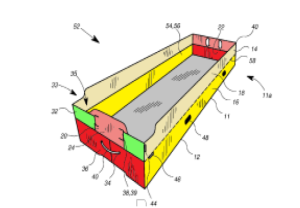 Indiana Bible College has filed a lawsuit in federal court against Fred Bock Music Company, Dr. Rosephanye Powell, and up to 100 unnamed individuals or entities. The dispute centers on a piece of music titled “John 1,” which the college claims it composed independently. The defendants argue that “John 1” infringes on the copyright of Dr. Powell’s earlier musical work, “The Word Was God,” which is also based on the same passage of scripture from the Bible. (Click on the links to hear renditions of each song.)
Indiana Bible College has filed a lawsuit in federal court against Fred Bock Music Company, Dr. Rosephanye Powell, and up to 100 unnamed individuals or entities. The dispute centers on a piece of music titled “John 1,” which the college claims it composed independently. The defendants argue that “John 1” infringes on the copyright of Dr. Powell’s earlier musical work, “The Word Was God,” which is also based on the same passage of scripture from the Bible. (Click on the links to hear renditions of each song.)
The conflict began when the defendants sent the college a cease-and-desist letter, asserting that “John 1” was a derivative work and constituted copyright infringement. Indiana Bible College denies these claims and insists that their composition is original and does not use any protectable elements of Dr. Powell’s work.
According to the complaint, the defendants went beyond legal demands by sharing statements online and with news outlets accusing the college of plagiarism and intellectual dishonesty. The college alleges that these statements were not only false but also harmful, damaging its reputation and disrupting relationships with students, musical collaborators, and organizations that had planned to perform or promote the piece. It also claims that the public allegations caused people to question the integrity of the composers involved and led to a loss of opportunities and trust.
 Indiana Intellectual Property Law News
Indiana Intellectual Property Law News












